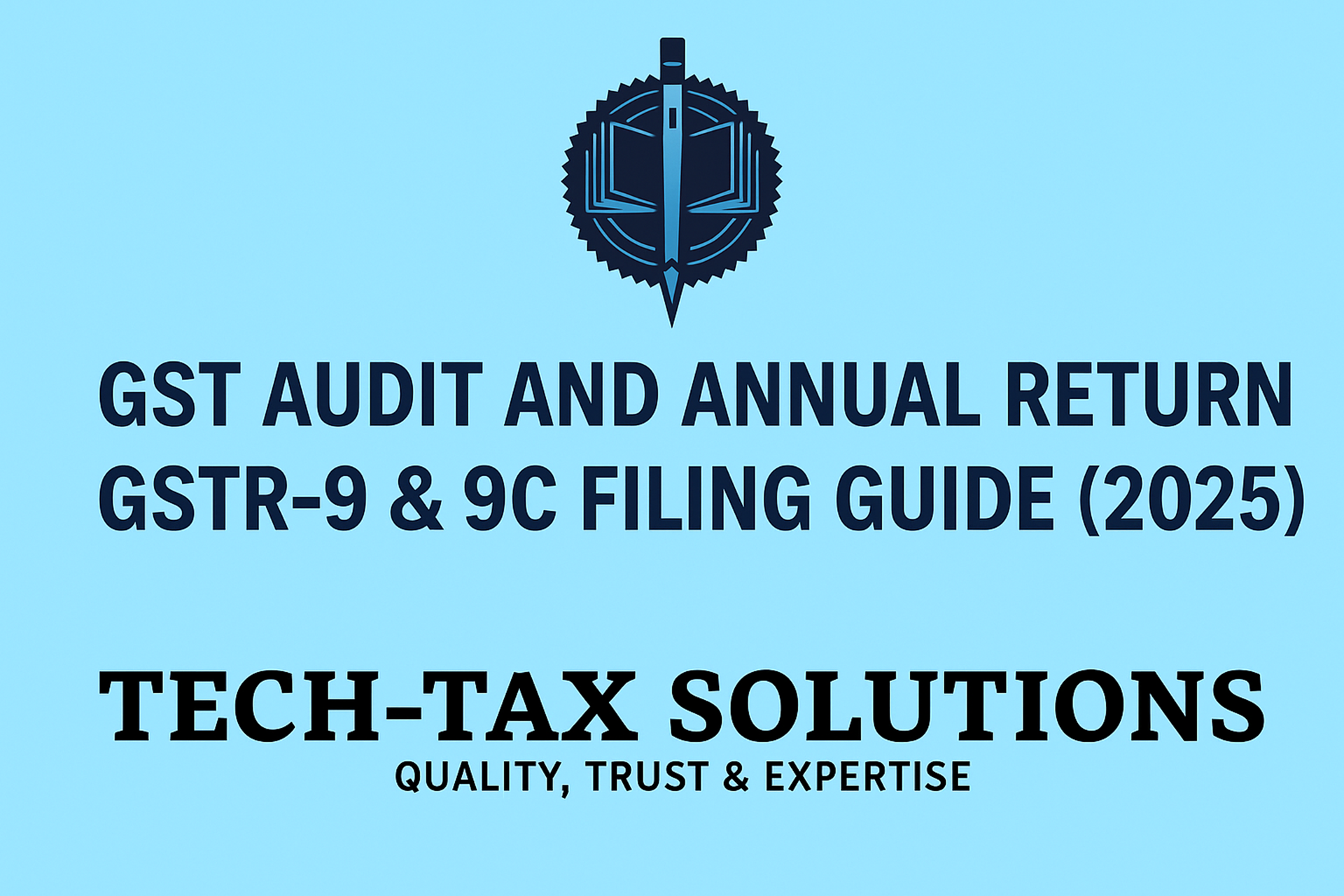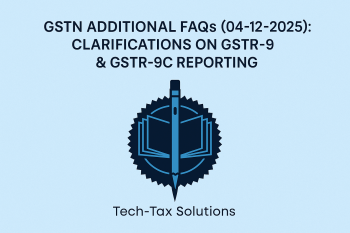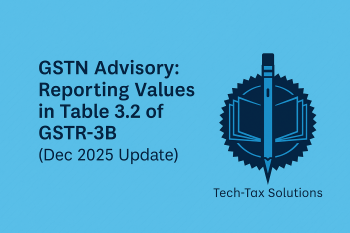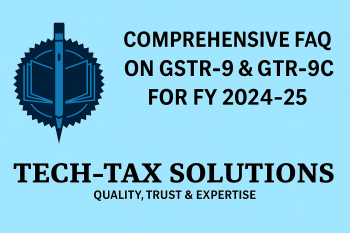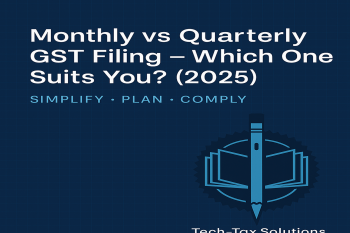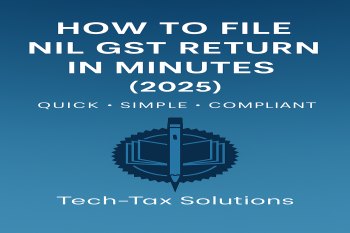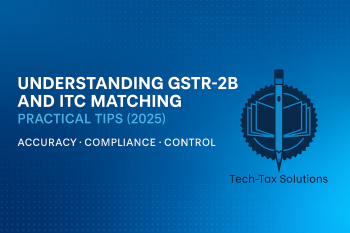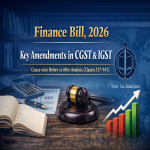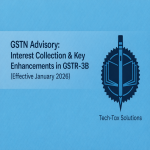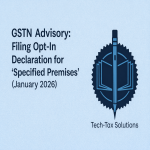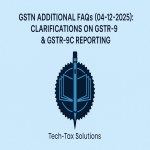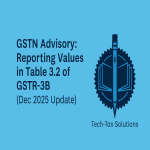🔹 Introduction
Every registered taxpayer under GST must file annual returns summarizing yearly transactions. For certain taxpayers, a reconciliation statement (GSTR-9C) is also required to reconcile GST returns with audited financial statements. The GST audit framework ensures transparency, accuracy, and compliance in reporting turnover, tax liability, and ITC.
(Reference: Sec. 35(5) & 44 of CGST Act, Rule 80 of CGST Rules, CBIC notifications up to FY 2024-25)
🔹 Legal Framework & Applicability (As on FY 2024-25)
✅ GSTR-9 – Annual Return
-
Mandatory for all registered persons (except composition dealers, ISDs, TDS/TCS deductors, and NRTPs).
-
Turnover limit for mandatory filing: Exceeding ₹2 crore (though optional for those below ₹2 crore as per latest CBIC relaxation).
✅ GSTR-9C – Reconciliation Statement
-
Applicable if aggregate turnover exceeds ₹5 crore during the financial year.
-
Taxpayers must self-certify GSTR-9C (audit by CA/CMA no longer mandatory as per amendments from FY 2021-22 onwards).
🔹 Key Differences – GSTR-9 vs GSTR-9C
| Particulars | GSTR-9 | GSTR-9C |
|---|---|---|
| Purpose | Consolidated annual return of GST data | Reconciliation between books & returns |
| Applicability | All regular taxpayers | Turnover > ₹5 crore |
| Certification | Self-filed | Self-certified (audit by CA/CMA removed) |
| Data Source | GSTR-1, 3B, GSTR-2B | Audited financial statements |
| Filing Type | Compulsory | Conditional |
🔹 Step-by-Step Guide to File GSTR-9
📌 Step 1: Log in to GST Portal
Visit www.gst.gov.in → Returns → Annual Return → GSTR-9.
📌 Step 2: Choose Financial Year
Select FY 2024-25.
📌 Step 3: Auto-Populated Data
-
System auto-fills data from GSTR-1 & GSTR-3B.
-
Verify details (sales, tax liability, ITC, outward/inward supplies).
📌 Step 4: Add/Edit Data
Make necessary corrections in:
-
Table 4: Outward supplies (taxable & exempt).
-
Table 6: ITC availed during year.
-
Table 8: ITC as per GSTR-2A/2B.
-
Table 9: Tax paid as per returns.
📌 Step 5: Validate Data
Ensure totals of taxable value & tax match with books of accounts.
📌 Step 6: Preview & File
Use DSC/EVC for submission. Download filed copy & acknowledgment.
🔹 Step-by-Step Guide to File GSTR-9C
📌 Step 1: Access GSTR-9C on GST Portal
Navigate to Services → Returns → Annual Return → GSTR-9C.
📌 Step 2: Auto-Filled Data
System pulls data from GSTR-9 & financial statements.
📌 Step 3: Sections to Fill
-
Part A – Reconciliation Statement:
-
Turnover, tax liability, rate-wise tax details.
-
Adjustments for unbilled revenue, advances, and credit/debit notes.
-
-
Part B – Certification:
-
Self-certification (by taxpayer).
-
📌 Step 4: Validate & Submit
Use digital signature to file. Generate acknowledgment (ARN).
🔹 Due Dates, Late Fees & Penalties
-
Due Date: 31st December following the end of the financial year (FY 2024-25 → 31st December 2025).
-
Late Fees (Sec. 47):
-
₹200 per day (₹100 CGST + ₹100 SGST).
-
Maximum = 0.25% of turnover.
-
-
Penalty for Mismatch/Non-Filing: As per Sec. 125 & 74A for incorrect returns.
🔹 Documents Required
-
Audited financial statements (Balance Sheet, P&L).
-
GSTR-1, 3B, 2A/2B summary.
-
ITC register.
-
Reconciliation statements for turnover & tax paid.
🔹 Practical Examples
Example 1: Trader (Turnover ₹3 crore)
Filing GSTR-9 mandatory; GSTR-9C not required.
Example 2: Manufacturer (Turnover ₹6 crore)
Must file both GSTR-9 & GSTR-9C (self-certified).
Example 3: IT Service Provider (Turnover ₹1.5 crore)
GSTR-9 optional (as per CBIC relaxation for <₹2 crore).
🔹 Common Errors in GSTR-9/9C Filing
-
Mismatch between GSTR-3B & GSTR-1 data.
-
Incorrect ITC carried forward.
-
Omission of credit notes/debit notes.
-
Reversal errors under Rule 42/43.
-
Late filing due to reconciliation delays.
🔹 Best Practices
-
✅ Reconcile returns monthly & quarterly.
-
✅ Conduct internal audit before year-end.
-
✅ Verify ITC via GSTR-2B regularly.
-
✅ File returns before due date to avoid late fee.
-
✅ Maintain digital backup of all filings.
🔹 FAQs
Q1. Is audit by CA mandatory under GST?
➡️ No, self-certification is sufficient for GSTR-9C since FY 2021-22.
Q2. Can nil return filers skip GSTR-9?
➡️ Yes, if turnover < ₹2 crore, filing optional.
Q3. What if turnover is ₹5 crore exactly?
➡️ GSTR-9C required if turnover exceeds ₹5 crore (i.e., > ₹5,00,00,000).
Q4. Can GSTR-9/9C be revised?
➡️ No, once filed cannot be revised.
Q5. What if annual return not filed?
➡️ Heavy late fee & potential notice under Sec. 46 & 74A.
🔹 Conclusion
GSTR-9 & GSTR-9C provide a consolidated view of a taxpayer’s compliance during the year. Proper reconciliation with books ensures accuracy, avoids scrutiny, and maintains compliance credibility.
📌 Need professional help in GSTR-9, 9C filing, or GST audit reconciliation?
Contact Tech-Tax Solutions – Quality, Trust & Expertise in Ghaziabad, Noida & Delhi.
